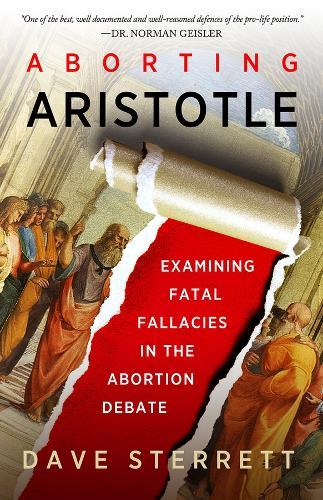Overview
The abortion debate has returned. More than forty years have passed since the landmark decision Roe v. Wade, which legalized abortion in the United States. But the abortion debate continues to rage among ethicists and the influencers of society in politics, government, and the arts. Dave Sterrett’s Aborting Aristotle examines these essential differences philosophically, while investigating the naturalistic worldview about humanity that is frequently held by many of the scholarly defenders of abortion. Each year 44 million babies are killed from intentional abortion around the world. 1.29 million babies are aborted right here in the United States. These are not just merely cold statistics: These are human beings . . . real babies. Sterrett reveals the unreasonableness of abortion and argues against abortion even in the difficult circumstances. In the ancient world, infanticide was defended by Plato and Aristotle. Christians who believed in the sacredness of human life stopped infanticide and intellectually argued against the practice. Peter Singer, professor of ethics at Princeton, hopes the time has come for atheists to reassess the morality of infanticide “without assuming the Christian moral framework that has, for so long, prevented any fundamental reassessment” [Peter Singer, Practical Ethics (Cambridge University Press, UK; 1993), 173.] Dave Sterrett takes on Peter Singer, along with other scholarly defenders of abortion, including David Boonin, Michael Tooley, and Judith Jarvis Thomson. Although he is against Aristotle’s teaching in favor of abortion, Sterrett argues that Aristotle had much good in his metaphysical and logical teachings that Western education has forgotten. Sterrett draws upon current scientific knowledge of the human embryo to provide reasons for a restoration of the Aristotelian scholastic philosophical tradition that could help ethicists become more open-minded about the dignity and personhood of unborn human beings.
Full Product Details
Author: Dave Sterrett
Publisher: St Augustine's Press
Imprint: St Augustine's Press
Dimensions:
Width: 14.40cm
, Height: 1.50cm
, Length: 23.50cm
Weight: 0.290kg
ISBN: 9781587310034
ISBN 10: 1587310031
Pages: 120
Publication Date: 30 August 2015
Audience:
Professional and scholarly
,
Professional & Vocational
Format: Hardback
Publisher's Status: Active
Availability: Out of stock

The supplier is temporarily out of stock of this item. It will be ordered for you on backorder and shipped when it becomes available.
Author Information
Dave Sterrett, author of seven books including the Christian best-seller I Am Second (Thomas Nelson), holds graduate degrees from the University of Dallas and Southern Evangelical Seminary. He has lectured on bioethics and natural theology at many universities. He is the national director of outreach for Online for Life and serves on the national board of 40 Days for Life.




